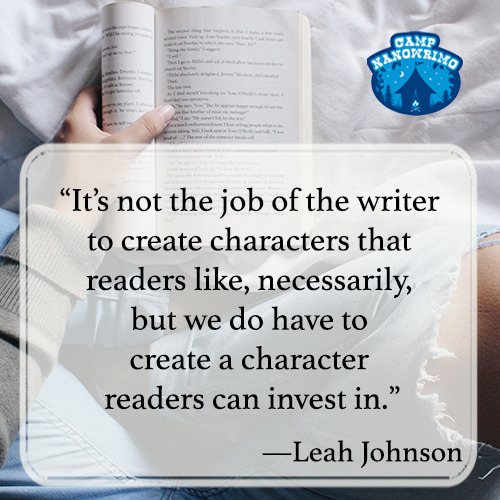Chris Baty's Blog, page 52
August 7, 2020
10 Book Recommendations for Quarantine

Looking for some books to help pass the time while you’re stuck inside? Young Writer’s Program participant Mahreema J. has you covered! Here are ten novels to read while you shelter in place:
Ok, so I’ll be honest. I LOVE it when my friends and classmates come up to me for a book recommendation! Its just the best feeling to know, that someone can trust your book taste, and trust you in what they are about to spend hours reading. No pressure!
So, you can imagine how ecstatic I am, right now, to tell you my book recommendations. I’ll admit, I have a super long TBR (To Be Read) pile, and some of them I know are amazing already (by reviews, teasers, blurbs, recommendations) and they are included here. The obvious books that have probably already been read by you were not included, so you see new books.
So here are the books that I definitely recommend you check out! I also put in some books written by super talented young writers as well:
Series1. Alex Rider by Anthony Horowitz (My Favorite!)
“When Alex Rider learns that his uncle Ian has been killed in the line of duty as a British spy—and not in a car accident like he’s been told—everything changes for this otherwise normal teen. He is approached by Alan Blunt, head of a shadowy offshoot of MI6 known, who reveals that Alex has been unknowingly trained since childhood for the dangerous world of espionage.”
2. Maze Runner by James Dashner
“When Thomas wakes up trapped in a massive maze with a group of other boys, he has no memory of the outside world other than strange dreams about a mysterious organization known as W.C.K.D. Only by piecing together fragments of his past with clues he discovers in the maze can Thomas hope to uncover his true purpose and a way to escape.”
3. Hunger Games by Suzanne Collins
“Sixteen-year-old Katniss Everdeen volunteers in her younger sister’s place to enter the games, and is forced to rely upon her sharp instincts as well as the mentorship of drunken former victor Haymitch Abernathy when she’s pitted against highly-trained Tributes who have prepared for these Games their entire lives. If she’s ever to return home to District 12, Katniss must make impossible choices in the arena that weigh survival against humanity and life against love.”
4. The Knowers by Nina Martineck
“Skylar Rawlings knows that things are not right. The island she lives on is disconnected from everything, but she sees connections everywhere she looks. Her school says she has attention-deficit/hyperactivity disorder, but she can concentrate on all kinds of things–if they’re interesting enough. Like her math teacher lying about this field trip to the capital, the average IQ on this island being too high to be chance, or that time slows, speeds up, and sometimes stops altogether. Skylar knows her education is misleading, most people are oblivious, and the world certainly can’t work like this. She knows she’s missing something. What she doesn’t know is that knowing has a cost.”
5. The Da Vinci Code by Dan Brown
“The Da Vinci Code, by Dan Brown, combines mystery, action, and thrills. This novel is the second in the Robert Langdon series, and begins with the murder of Jacques Saunière. Saunière led a double life. Professionally, he was a curator at the Louvre in Paris, France, but he guarded a powerful secret.”
Standalones6. The Book Thief by Markus Zusak
“Mainly, The Book Thief is about a girl who grows up with her foster parents in Germany, during the struggles of Germany in WWII. It explores the themes of war and death, and shows us the other side of the people under Hitler, showing us that not everyone hated Jews, and everyone had a hard time picking their side.”
7. The Secrets Within Me by Liana Ramirez
“For seventeen-year-old Magi Davis, everyone in her life knows her biggest secret, except for her… after Magi is almost murdered, her Egyptologist father takes her from their quiet rainy town in Seattle to Egypt in an attempt to seek refuge. After meeting R.J. Hicks, her father’s witty business partner, and Carter McClain, the only person her age within miles, she quickly realizes that everyone in her life, including the neighborhood cat, has been lying to protect her from mythological forces that were once her father’s bedtime stories. Now Magi must discover what her big secret is before an ancient deity kills her and everyone she cares about…”
8. Miss Peregrines Home for Peculiar Children by Ransom Riggs
“When Jacob discovers clues to a mystery that spans different worlds and times, he finds a magical place known as Miss Peregrine’s Home for Peculiar Children. But the mystery and danger deepen as he gets to know the residents and learns about their special powers and their powerful enemies. Ultimately, Jacob discovers that only his own special ‘peculiarity’ can save his new friends.”
9. 100 Days of Sunlight by Abbie Emmons
“When 16-year-old poetry blogger Tessa Dickinson is involved in a car accident and loses her eyesight for 100 days, she feels like her whole world has been turned upside-down. Terrified that her vision might never return, Tessa feels like she has nothing left to be happy about.”
10. Leaving Wishville by Mel Torrefranca
“With time against him, and his curiosity stronger than ever, he knows what he must do. Leaving Wishville might be his only chance for freedom—but it may also cost him his life. A colorful and chilling debut, LEAVING WISHVILLE dives into a sea of forbidden curiosity, unavoidable grief, and the dangers of discovering the truth.”
Alright, so these are my top TBR books and top book recommendations. I hope you enjoy some of them. Obviously we all have different tastes, but after viewing/reading these books, I hope you find another book that you like from it. (By the way, a lot of these books are now movies, so make sure you go check them out AFTER you read the book!)
Thank you for reading, and enjoy your book!
Mahreema J. is a 12-year-old girl from England, with a deep passion for creativity and books. She has been writing since she could read and reading since she could write. She is currently writing a novel (unknown title) that will soon be published one day. She is talented at calligraphy, baking and other creative hobbies. And there’s nothing she loves better, than to sit and read a good book.
Top photo by engin akyurt on Unsplash
August 5, 2020
How Changing Your Environment Can Help Your Novel

Do you have a routine to your writing that’s feeling a bit stale? Sometimes all we need for a boost of writing inspiration is a change of scenery! Young Writers Program participant Brianna is with us today to share with us how switching up our routine—whether through travel or music—can benefit us as writers.
Picture this: You sit down at your desk for another day of writing. You click on the Google Doc (or grab that notebook) you’ve been working on/in diligently, and then it hits you: You have no clue what you are going to write.
If you’re like me, this has probably happened to you on more than one occasion. You don’t understand why—you always work in this place. What you see as comfort might just be what is causing your writer’s block.
Sometimes all you need to do is change the environment you’ve been writing in. Going to a new place can help spark creativity. That single mother balancing a toddler on her hip could become inspiration for the daring mechanic repairing space ships to provide for her children. The charismatic librarian might find herself as the hero’s devoted mentor in a sci-fi story.
Sometimes the best inspiration comes from the environments that we write in and the people we interact with. When I sat down at my laptop for the first day of NaNo last year, I was full of great ideas. I knew just where I wanted my story to go, but by day 15, I was lost. Turns out, all I needed was a small environment change and I was back to my usual writer self. Here are some ideas for how you can beat writer’s block with a few simple changes.
1. MusicOne of my favorite resources for inspiration is Spotify. I’ve created playlists for the books I’m working on and the places that I listen to music the most: I have a dance playlist for when I’m stretching, playlists broken up by genre, and of course a writing playlist with chill music. Now, you may be wondering how music has anything to do with environment. Music creates an environment in itself. We recognize generations by the music we listened to and certain songs bring back memories.
Try listening to a new playlist and write a short piece based off of the tone, genre, and message the song is sending.
2. The LibraryI volunteer at my local library by checking the books in and out and shelving returned titles, but when I’m not busy, it’s a great place to write. Sometimes I’ll just sit at the desk and describe the patrons that walk in and out. I also like to watch body language and the way people talk to one another. A fun challenge can be to go into your local library (if it’s currently open) and just listen to conversations. Not in a creepy, eavesdropping way! It doesn’t have to be a library either. Going into different stores and cafes can help get the creative juices flowing.
3. TravelMany authors travel to new places searching for inspiration. Writing in a new environment such as the beach or school can help defeat writer’s block and spark new ideas. Try visiting a new place and see the writing that could be born.
If you can’t travel to a new place right now, try taking a trip to a different spot in your home. If you usually write at your desk, try writing at the kitchen table, in bed, or on the sofa. You could even try writing somewhere you normally wouldn’t sit, like on the stairs or in your dog’s bed. Do these new perspectives or locations inspire you to write something you normally wouldn’t think of?
Environments can play a huge part in writing and sometimes all a writer needs is a new place to spark creativity. I hope you enjoyed these tips and remember to write!

Brianna is a high school student with a passion for all things reading, writing, blogging, and Marvel. She enjoys reading anything from John Green to Sarah J. Maas, and aspires to one day publish a contemporary YA book. Brianna is the host of Brianna’s Books and Randomness, a blog where she reviews books, talks about writing, and discusses why Loki should be an Avenger.
Top photo by Kira auf der Heide on Unsplash
August 3, 2020
Pulling Back the NaNoWriMo Curtain

There comes a point when we have to wish our amazing, talented interns good-bye as they move on to share their awesomeness with the rest of the world. Here’s a sneak peek behind the curtain at NaNoWriMo HQ from the fantastic Jubilee Nelson, our 2020 Spring/Summer Editorial Intern:
I’m sure at some point you’ve heard the saying that you don’t truly know a person until you’ve seen them go through both good and bad situations. How a person reacts to stress can tell you a lot about them. While this usually applies to relationships, this internship has shown me that this applies to organizations as well.
So many of us only get to observe the people, groups, and organizations we admire. We participate as best we can in their lives or causes from the outside. We admire them from afar and believe they stand for something good, but since we don’t truly know them there often remains a sliver of doubt: Doubt of their integrity. Fear of problematic talk or behavior that could be under the surface.
I don’t claim to know all the details. If there’s a secret spreadsheet labeled NaNoWriMo World Domination, sadly I wasn’t privy to it. I can only speak about what I know from my own experiences.
I’ve seen the Young Writers Program moderators go above and beyond to provide support to troubled and grieving children on the forums. Children who are worried about their friends, families, education, and emotional/mental health as they try to process the world of 2020.
I’ve seen the Wrimos and Young Writers who sent in their blog submissions not just challenge themselves to write when they feel they are surrounded by chaos, but even express that they found comfort and stability in it.
I’ve heard the NaNoWriMo staff discuss in every meeting and every conference call how they can continue to be supportive and inclusive in their mission to share a love of writing with the world.
Throughout this internship I’ve thought back to the saying about not knowing someone until you’ve seen them in their highs and lows. This year has held many lows for a lot of us, myself included. We worry for the safety of ourselves and our loved ones from illness, injustice, and instability. These are very real fears that I in no way want to minimize, but I am also so proud of NaNoWriMo’s continued efforts to weather through the 2020 storm. From daily mental wellness check-ins to the continued support of diverse charity organizations to even just the language they use when speaking amongst themselves, the NaNoWriMo staff’s passion and sincerity has always struck me as genuine.
As I said before, many of us only ever get to observe the groups we admire from the outside. From the glimpses I’ve seen though, both in good times and bad, NaNoWriMo has continued to be encouraging, thoughtful, and supportive.
I am so grateful for my time at NaNoWriMo. I was able to look behind the curtain and often found myself in awe. Awe of my coworkers’ sincerity and drive, awe of the Young Writers’ creativity and wit, and awe of the opportunities I was blessed to have at this organization.
As I take my leave, I want all you future interns to know it is my biggest hope that you too will be hit with that same feeling of reassurance and awe at how wonderful NaNoWriMo really is when you get your first peek behind the curtain. It’s a wonderful feeling.
Best,
Jubilee Nelson
July 31, 2020
5 Tips for Practicing Self-Care and Adapting to the New Normal

Whether you consider yourself an outgoing person or someone who’d rather recharge in the quiet of your room, we could all benefit from some self care while we shelter in place. Here today with suggestions for self care for both introverts and extroverts is Wrimo A. N. Broadrick:
In a novel time where many people around the globe must keep physical social interactions to a minimum (or not at all) for mutual health and safety, I ponder a grand question: how can we as a society adapt and overcome? Existing research and general observations tell a story about the world’s current circumstances may affect people differently. And by extension, how the “stay home” movement impacts writing.
The environmental effects on an individual depends on many factors including personality traits and the situational context. Introverts and extroverts experience the world differently. In the global quarantine resulting from the COVID-19 pandemic, introverts may be happy to stay at home in their own domain and bask in their own thoughts (at least, in my experience). Extroverts, in contrast, may have a more difficult time adjusting to a life of quarantine due to the lack of external social stimulation.
In relation to work (or in this case, writing) having the perception of environmental control can contribute to the ease of adaptation, according to D. H. Schunk (2016), the author of Learning Theories: An Educational Perspective (7th ed.). Schunk explains how evidence supports “that when people think they have control over their environment, they tolerate aversive stimuli better and perform at a higher level”. In a normal, non-quarantined world, introverts usually assimilate to an extroverted society, especially in the United States.
For example, I am an introvert. I can sit in a busy cafe or crowded outdoor space on my lunch break with my earbuds in, and my pen, paper, and my coffee in hand for company. I can tune out my chatty peers and the constant movement in the background. I have the perception of control over my personal space. Thus, I can adjust enough to comfortably write in what I consider a chaotic environment. I adapt. On the other hand, someone with a more extroverted personality may prefer the noise of the chatter while writing rather than the carefully selected background noise of a cello that I prefer.
Society’s reversal on what is considered acceptable socialization (for good reasons!) may put extroverts in a situation that requires adaptation. While the enforcement of social distancing is out of our hands, let’s take a minute to consider what is within our control:
Internal thoughts – Regardless of your personality type, you can take control of your inner dialogue, especially when you go down a metaphorical rabbit hole.Reactions to your thoughts – Let’s say you do go down a rabbit hole and find yourself in a not-so-happy place. Take a moment to self-check and redirect! Are you thinking about something that is not serving you or preventing you from achieving your goals? Recognize that yes, sometimes you can be your biggest critic. However, you do not have to be. Have patience with yourself. You may be physically alone, but you are not alone in this!Practice positive self-talk – This is important! You are in control of your inner voice. Be kind to yourself.Practice self-care – Have you heard the flight attendant speech about why it is important to put your mask on before your children or spouse? Well, you cannot care for them if you are physically (or mentally) unable to do so! If you are not well, you cannot adequately care for yourself much less others. Slow down and take care of your body and your mind. This could be practicing yoga in the living room while you have your family and friends on video chat. Or, this could be weekly phone conversations with a counselor. Self-care is vital to your overall wellbeing!Immediate personal space – When have taken care of your basic needs and are able to adapt to your situation, you now have control of your environment and yourself. You are freed to let your creativity flow through the keyboard onto your screen or from the ink of your pen onto the lines of your journal.While our world’s situation may not be ideal for everyone, practicing self-care no matter where you are can help you establish and maintain personal control. Be patient with yourself.
References:
Schunk, D. H. (2016). Learning theories: An educational perspective (7th
ed.). P. 381. Boston, MA: Pearson.

A. N. (Oberlander) Broadrick has a passion for education, philanthropy, writing, and data. Throughout her career, she commits to ethically utilize data to tell stories to make a positive impact in her community and beyond. She has a M.S. in educational psychology and research and a B.S. in communication arts. She is an avid practitioner of yoga with her family and has a deep appreciation for coffee, poetry and score soundtracks.
LinkedIn Profile: www.linkedin.com/in/ashleynbroadrick
July 30, 2020
“Endings are important, but just because you might be nearing...

“Endings are important, but just because you might be nearing the end of this draft doesn’t mean your work is done! Writing is all about rewriting, so push to get to this, the first of many endings. Then congratulate yourself and refresh your brain by taking a nice long break (I recommend at least a few weeks!) and get ready to dive back in. Even if you don’t make your original deadline, set a new one and push hard toward it. All forward motion counts, and you’ve almost made it.”
—Ashley Woodfolk has loved reading and writing for as long as she can remember. She graduated from Rutgers University with a Bachelor of Arts in English and worked in children’s book publishing for ten years. She wrote her first novel, The Beauty That Remains, from a sunny Brooklyn apartment where she lives with her cute husband, her cuter dog, and the cutest baby in the world: her son Niko. When You Were Everything is her second novel.
Your Camp Care Package is brought to you by Camp NaNoWriMo. Sign up to receive more Camp Care Packages at nanowrimo.org!
July 29, 2020
10 Tips for Writing With a Busy Schedule

Whether it’s school, work, or family that’s got you strapped for time, fear not! Long time Wrimo Josalyn McAllister is here today to share her advice to help you find time to finish your novel on even the tightest of schedules.
I first heard about NaNoWriMo at my local library. I had recently decided to become a stay-at-home mom and my daughter was five months old. She required all my attention most of the time, then lay sleeping in her crib for a couple hours each day, leaving me alone in an empty house. I would set her down for her nap and then run to the computer and type furiously until she woke up. I was able to complete all 50,000 words and I felt so good about myself.
Three more kids and a couple part-time jobs later, I no longer have glorious uninterrupted nap times to write. However, I have published my first novel (which started out as a NaNo project), and won NaNo 8 more times. I’ve learned a few things over the years:
1. Abandon your dreams.Well, not all of them, but definitely your vision of uninterrupted writing time with motivational music playing and a cup of tea alongside you. If you wait for that moment, you won’t finish. There will be a few of those moments, but not 50,000 words worth of them.
2. Use the odds and ends of time.David McCullough describes an early American doctor who was also a painter and biologist. “When asked how it was that he could do so much and accomplish so much, he said, “I’ve learned to use every one of all the odds and ends of the time.”
3. Do what works for you.I’d heard of writers who don’t realize time is passing because they’re “in the zone.” That has never happened to me. Shorter, fifteen-ish minute bursts make me a lot more productive. Figure out what works best for you and do it. Don’t try to fit into some mold of what a “writer” does.
4. Outline.For years I thought of myself as a pantser, chaffing at the restriction of an outline. Then I wrote a mystery novel and had to outline so the end would make sense. It was the easiest 50,000 words I’ve ever written. It was amazing not to have to sit for a while and think about what should happen next. Even a pantser can write down a list of essential scenes. Don’t be afraid to skip around in your story.
5. Write more words than you need each day but don’t burn yourself out.I’ve seen people do 10k in one day, then not write anything else. I’ve also seen people do exactly 1667 words each day, then miss a day and get so discouraged that they quit.
6. Don’t edit.Even if you’ve written the dumbest sentence in the history of human language, leave it and move on. Edit in December.
7. Make it fun.My friends and I used to book a cabin to do twenty-four hours of writing. We ate tons of junk food and would ask each other for ideas when we got stuck. It was lovely.
8. Find what motivates you.Try reading The Four Tendencies by Gretchen Rubin.
9. Turn off your internet.I used to end up down rabbit holes for hours “fact checking.” This can be valuable to the creative process but sucks up a lot of time. Turn off your internet until you get your words written. If you want to fact check later, just highlight the sentence in your document so you can come back to it.
10. Don’t be negative about your work or anyone else’s.Creativity and negativity don’t mix.
Happy writing!

Josalyn McAllister recently released her debut novel, Love Over Easy, in May. She has participated in NaNoWriMo for eleven years. In her spare time, she raises four children, volunteers at her church, celebrates every holiday conceived by man and blogs on her website josalynmcallister.com. You can follow her on Instagram @josalynmcallister.
July 28, 2020
"Dialogue can make or break a novel. If your dialogue isn’t convincing, it can affect..."
-
Ashley Woodfolk has loved reading and writing for as long as she can remember. She graduated from Rutgers University with a Bachelor of Arts in English and worked in children’s book publishing for ten years. She wrote her first novel, The Beauty That Remains, from a sunny Brooklyn apartment where she lives with her cute husband, her cuter dog, and the cutest baby in the world: her son Niko. When You Were Everything is her second novel.
Your Camp Care Package is brought to you by Camp NaNoWriMo. Sign up to receive more Camp Care Packages at nanowrimo.org!
July 27, 2020
Bullet Journaling for Organized Writing

Tracking your writing doesn’t have to just be limited to a word count! Creating a plan or schedule for your writing sessions can be game changer for productivity. Young Writers Program participant Mahreema J. suggests using a bullet journal to keep organized during Camp:
During these difficult times, living behind closed doors, I have found it extremely difficult to make time for my daily activities. I am positive that some of you have scrolled through social media and have found some pictures on Bullet Journals. For those of you who don’t know the concept, bullet journaling is you designing (doesn’t have to be fancy, or anything) a planner for you to organize yourself.
“It’s part organization, part soul-searching, part dream-weaving.”
― Ryder Carroll, The Bullet Journal Method: Track the Past, Order the Present, Design the Future
Now I know some of you may already be thinking ‘Its half-way throughout the year. Aren’t bullet journals supposed to begin in January?’ Well, in my opinion, that’s the wrong way to think about it. Bullet journals are for organization—you don’t need to begin them at a specific time.
This also applies to how nice it should look. Most bullet journals are highly decorative and fancy. This immediately puts people off because they think they can never do something like that. You can do anything, if you put your mind to it! But if you still don’t want to, you can always go minimal.
If you don’t want to dedicate yourself by starting a whole planner for scheduling yourself, that’s ok! The main idea is to get organized, so you have time for everything you want to do. If you want to, you can even just grab some paper, or Post-It-Notes to stick on your fridge. It’s completely up to you.
Here are some tips for bullet journaling I’ve found to be helpful:
I create trackers in my bullet journal for how long I wrote each day (and how long I procrastinated) and compare it to the other days.Your can always bend your schedule for certain days! No stress!Bullet journaling may seem time-consuming, and you may feel you could have been writing your wonderful novel during that time. But bullet journaling can a very effective tool to help you get your writing done.
Mahreema J. is a 12-year-old girl from England, with a deep passion for creativity and books. She has been writing since she could read and reading since she could write. She is currently writing a novel (unknown title) that will soon be published one day. She is talented at calligraphy, baking and other creative hobbies. And there’s nothing she loves better than to sit and read a good book.
Top photo by Isaac Smith on Unsplash.
July 24, 2020
3 Tips to Help You Reach Your Writing Goal

If you’ve been having difficulty finding time to write or creating a writing routine, you’re not alone. Don’t be too hard on yourself! Wrimo Jessica Harden is with us today to share 3 tips to help ease us into our writing goals:
Half the battle of writing involves finding the time. With things like the internet and streaming services singing a siren song for instant gratification, sitting down to do something that takes a lot of effort can sometimes be harder than the writing itself. I am a full-time student, a wife and dog owner, and I hold down a part time job. Writing can be overwhelming and exhausting to even think about with so much of your day demanding your time and attention. Here are three tips to help you reach your writing goals, even in the absolute whirlwind of your life:
1. Sitting with your story counts as writing.As writers, we put a lot of pressure on ourselves to write every day. Just thinking about your story counts. Even if you just open your word document and don’t write a single word, you showed up for yourself. That matters. Stories need time to come together. Let that happen. Don’t waste valuable time worrying about how little you have gotten done. It’s not a race. You may need some distance from your story. Then when you’re ready, let the words really fly!
2. Don’t put too much pressure on yourself .This goes back to tip 1, avoid anything that stifles creativity. Challenge yourself as a writer, but if your word count is becoming more of a burden than a tool, let it go. You spent time in your story. That counts. Again, it’s not a race.
3. Any time spent writing is time well spent.Try writing sprints. Set a timer for 10 to 15 minutes and don’t let your fingers leave the keyboard. This will jumpstart your creativity and you’ll be surprised how much you actually get done in those short bursts of writing. Finding an hour in busy schedule can be tough, but everyone can do anything for 15 minutes. Using writing sprints can really unlock writers’ block and remove the fear of the blank page. You don’t have time to worry about what you are writing, you can edit later, you just need to write! Get the creative juices flowing. You may have such good momentum going that you turn off the timer and just keep writing!
It’s hard to write, so don’t worry too much about the times you don’t feel like writing. Show up for your work and for yourself. Writers feel the need to get the words out. You want to share with the world your experience and parts of yourself. First put in the work. This involves not putting so much pressure on the story. Finding the time to write is less about the actual time spent writing and more about changing your perspective. Just spend time in your work. That is what counts.

Jessica Harden is currently a full-time student trying to get her Bachelor’s Degree. She enjoys doing yoga, reading lots of books, and drinking hot beverages while writing with her dog cuddled next to her. She has been writing for over ten years and is an aspiring author. She and her husband live in Texas with their sweet old dog named Hubble. If you are interested in more of Jessica’s shenanigans you can follow her on Twitter, Medium, or YouTube.
Top photo by Lucian Alexe on Unsplash.
July 23, 2020
“It’s not the job of the writer to create characters that...

“It’s not the job of the writer to create characters that readers like, necessarily, but we do have to create a character readers can invest in.”
—Leah Johnson is a writer, editor and eternal Midwesterner, currently moonlighting as a New Yorker. She is a 2021 Lambda Literary Emerging Writers Fellow whose work has been published in BuzzFeed, Autostraddle, Catapult, and Electric Literature, among others. Her bestselling debut YA novel, You Should See Me in a Crown, was named one of Cosmo‘s 15 Best Young Adult Books of 2020, and was an Indies Introduce and Junior Library Guild selection. Her sophomore novel, Rise to the Sun, is forthcoming from Scholastic in 2021.
Do you usually write likable characters? Let Leah know, and/or thank her for her #CampCarePackage!
Your Camp Care Package is brought to you by Camp NaNoWriMo. Sign up to receive more Camp Care Packages at nanowrimo.org!
Background quote photo by Fabiola Peñalba on Unsplash.
Chris Baty's Blog
- Chris Baty's profile
- 63 followers



